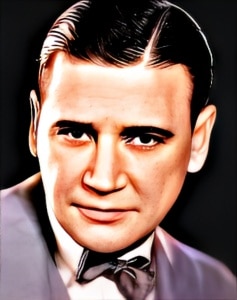 James Neill, a prominent figure in the early years of American theater and silent film, was born on July 29, 1860, in Savannah, Georgia.
James Neill, a prominent figure in the early years of American theater and silent film, was born on July 29, 1860, in Savannah, Georgia.
He made significant contributions to the world of entertainment as a talented actor and director, leaving a lasting legacy in both theater and film.
Neill’s career in entertainment began in the late 19th century when he took to the stage, gaining recognition for his acting skills. He made his mark in theater, particularly in the field of melodrama, which was a popular genre in that era. His strong stage presence, resonant voice, and versatility as an actor set him apart in the competitive world of live performances.
One of Neill’s notable achievements in the theater was his association with the renowned playwright David Belasco. The two collaborated on various productions, including the famous melodrama “The Heart of Maryland.” Neill’s portrayal of Captain Jack Starlight in this play became iconic, and it solidified his status as a leading actor in the theatrical world.
In addition to his success on the stage, James Neill transitioned into the emerging film industry. With the advent of silent cinema, he brought his theatrical experience to the silver screen. He appeared in a range of silent films, often in character roles that showcased his depth and versatility as an actor. His performances in these early films were marked by a strong and dramatic style, reminiscent of the melodramatic acting of his stage career.
One of Neill’s memorable film roles was in the 1920 silent film “Way Down East,” directed by D.W. Griffith. This film, set in a rural New England village, featured Neill as Squire Bartlett. His portrayal contributed to the film’s success and critical acclaim. “Way Down East” is remembered as one of the classics of silent cinema.
James Neill’s transition from the stage to film demonstrated his adaptability and the enduring nature of his talent. He continued to work in both mediums, gaining recognition for his contributions to both theater and cinema.
While his career in film and theater was highly regarded, it was not without its challenges. The entertainment industry was rapidly evolving during his time, and the transition to sound in cinema presented new challenges. Many silent film actors struggled with this shift, as their vocal abilities and stage techniques needed to be adapted to the demands of sound. Neill continued to work in film during the early sound era, but the transition proved more difficult for some actors.
Throughout his career, James Neill’s presence and influence in the entertainment world were remarkable. His passion for acting and his dedication to his craft were evident in his performances, whether on the stage or screen. He was admired for his ability to convey powerful emotions and engage audiences.
As he aged, Neill continued to be involved in the entertainment industry, contributing his wealth of experience and knowledge to younger generations of performers. He passed on his legacy to the next wave of actors and directors, leaving a lasting impact on American entertainment.
James Neill’s long and storied career came to an end when he passed away on March 16, 1931, in Los Angeles, California. His contributions to the world of entertainment, particularly in the early years of American theater and silent film, remain a testament to his talent and dedication. He is remembered as an enduring figure in the history of American performing arts.
Loading live eBay listings...




